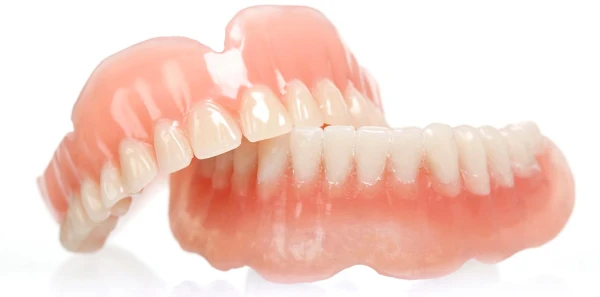Dentures should have a snug and comfortable fit against the gums when initially placed in a patient’s mouth. However, a reline will be required after some time, owing to the natural aging process and the reabsorption process that occurs in the jawbone and gums.
After a tooth has been removed from its socket in the gums, the remaining alveolar bone tissue begins to deteriorate, and the remnants of this substance are distributed throughout the remainder of the body. This results in a change in the gums’ density and form, leading to a misalignment of the teeth and pain.
Patients have the option of selecting between a hard or soft denture reline, depending upon their needs as well as their personal preferences. But to know which type of denture reline you need, be sure to read on.
Hard and Soft Denture Relines: Learning the Differences
Quality new dentures will fit just right since they are customised to your gums. Dentures are designed to mimic the shape of your natural teeth and gums closely. But as time passes, these tissues change and your denture may no longer fit properly.
Maintaining a routine of expert relining for your dentures once every year or two can maintain your replacement teeth feeling secure and functioning at their best for the duration of their use.
What Is a Hard Denture Reline?
Patients who desire a long-lasting solution to relining dentures without getting a brand-new fitting may benefit from a hard denture reline.
However, patients who feel severe pain with the fittings may not benefit as much from this reline.
In order to execute a hard reline, the dentist must first remove part of the hard plastic from the inside of the prosthesis. The dentist then fills any gaps or sore spots with putty and lets it set until it becomes rubbery.
Dental putty is used to create an accurate impression of the gums while the dentures are in place in the patient’s mouth. The imprint is then used by the dentist or lab technician to construct a new denture foundation out of hard acrylic.
What Is a Soft Denture Reline?
Patients often choose to have their dentures relined with a soft material. This relining method may only last a year or two before it has to be redone and takes more maintenance than a hard reline.
The consequence, though, is often more pleasant. A mild reline might be helpful for those with sensitive gums or chronic painful regions.
Additionally, owing to the exceptionally high rates of bone absorption happening at this period, patients who have just obtained dentures should choose a soft reline. Instead of acrylic, a softer, more porous substance is utilised for a soft reline, which helps to increase wearer comfort.
To sum up, here are the benefits of a soft denture reline:
- It is comfortable to use.
- The majority of patients are satisfied and respond well to this option.
- It allows for easier chewing.
- It has been proven and tested effective.
Get Your Dentures Relined at PR Denture Clinic!
Do your dentures already due for relining? At PR Denture Clinic, we have a team who can help you with your denture reline needs. Our team also offers quick and efficient denture fitting, adjustment, and repair to ensure your dentures feel comfortable and function optimally.
Get the confidence to smile again with the help of our high-quality and affordable dental denture. Be sure to schedule a no-cost appointment via our website. If you prefer, you may reach us by phone at (02) 9482 1952 if you want to enquire hard reline dentures cost or the cost of soft denture reline. Alternatively, you may email us at steven.frew@prdentureclinic.com.au to learn more!


